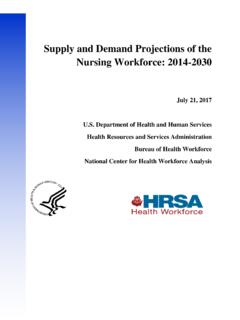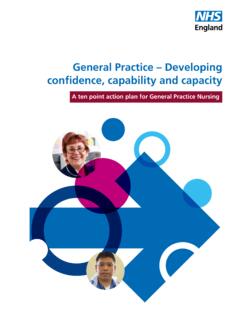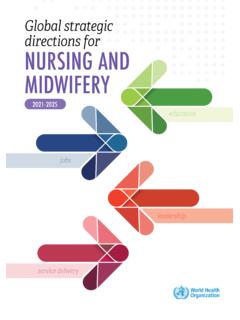Transcription of Why Employ a Nursing Associate - Health Education England
1 Why Employ a Nursing Associate ? Benefits for Health and care employersDecember 2019 Why Employ a Nursing Associate ?What is a Nursing Associate ?The Nursing Associate is a bridging role between healthcare support workers and graduate registered nurses. Nursing associates are new members of the care team, who are trained to foundation degree level. They will work with people of all ages and in a variety of settings in Health and social care. Why do we need Nursing associates? The Nursing Associate role was introduced in response to the Shape of Caring Review ( Health Education England , 2015), which aimed to ensure that nurses and care assistants receive consistent, high-quality Education and training that supports high quality care.
2 This review identified three specific problems which led to the recommendation for a new role, namely:1. A lack of training and development opportunities for care assistants, who were providing over 60 per cent of hands-on care. 2. An ageing population with more complex needs, requiring nurses to delegate fundamental aspects of care so they can focus on more complex tasks. 3. The Nursing shortage and need to widen access to the profession. The Nursing Associate role was introduced in January 2017 through the Health Education England (HEE) trainee Nursing associates programme. It aims to: support the career progression of care assistants enable nurses to undertake more advanced roles increase the supply of nurses by providing a progression route into graduate level Nursing .
3 What are the benefits to my organisation?Employers have invested in the Nursing Associate role as part of wider workforce planning and skills mix transformation. An independent evaluation of the first two waves of the Nursing associates programme revealed a number of benefits arising from the introduction of the role, including: 1. improved service delivery and patient care2. improved staff retention through career progression3. the ability to grow your own Nursing workforce4. investing in a tried and tested training programme, accredited by the Nursing and Midwifery Council (NMC). Nursing associates are working in new ways, they are more engaged not just in the patient s care, but also in the running of the ward and in the supervision of some student nurses.
4 What you find is that all staff on the ward start learning together and talking in a more proactive way about patient pathways and diseases, it s been a very positive experience. Ward managerBenefits for Health and care employers1. Improve service delivery and patient careTrainee Nursing associates are making a greater contribution to service delivery and patient care as they develop new skills and competencies. This can include: Improved patient communication Assisting nurses with a greater range of care-giving responsibilities More patient-centred care and acting as a patient advocate Identifying and escalating patients with deteriorating Health Displaying leadership qualities and supporting other trainees' development Exchanging skills, knowledge and good practice across settings, enhancing the quality of services.
5 [The trainee] was professional and understanding of my clinical depression which I have had for six conducted my Health check in a relaxed and comfortable manner explaining each stage clearly to me"Service user, Community setting2. Improve staff retention through offering career progression opportunitiesIntroducing the Nursing Associate role provides a recognised career pathway for bands 1-4 staff and widens access into Nursing , ensuring the workforce reflects local populations. Most trainee Nursing associates join the programme in order to progress their careers and develop their skills. Many see the apprenticeship route as an opportunity to go to university that might otherwise not be possible due to family and financial commitments.
6 The programme helps retain staff, with 65% of trainees in wave two of the test programme intending to continue working as a Nursing Associate in their current setting in the following year. This reduces staff turnover and, in some cases, spending on agency staff. Nursing associates are registered and regulated by the NMC, giving the role professional status and a clear sense of responsibility and Grow your own Nursing workforceNursing associates can also go on to train to be registered nurses by doing a shortened Nursing degree or Nursing degree apprenticeship. Close to half of surveyed trainees in wave 2 (47%) said they intended to enrol onto a pre-registration Nursing degree programme within three years of Invest in your workforce by offering an effective and financially sustainable Education and training programmeApproaching the end of the training programme, 85% of trainees surveyed felt prepared to enter the workforce as a Nursing Associate .
7 As a result of the programme, trainee Nursing associates have developed: new skills and knowledge greater confidence and self-belief a greater focus on delivering patient-centred care, rather than a series of you deliver a Nursing Associate programme through the apprenticeship route, you can meet the training costs using your apprenticeship levy, or a levy transfer from another organisation. Systems-level benefitsAs trainees have moved across placement settings, they have been able to exchange skills, knowledge and good practice across settings, which is improving the quality of services. Employers have particularly valued the skills being exchanged between mental and physical Health settings. My ward is mental Health ; our TNA came back to the ward with experience in physical Health .
8 Our doctors love him because he s able to do bloods, ECGs, and he talks to patients about their diets. He s teaching our staff about wound care; we re listening. He s very excited about all the things he s learned and he s bringing that back. It s making our staff up their game. Ward managerBuilding a business case You may need to present a business case to your board to secure the required investment to develop this role in your organisation. Visit the NHS Employers website for a list of prompts and an example business caseSourcesIntroduction of Nursing Associates - Year 2 Evaluation Report (Traverse, Oct 2019)






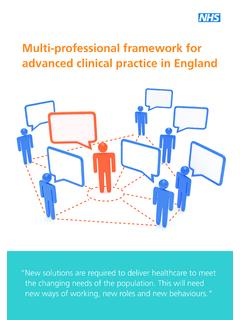
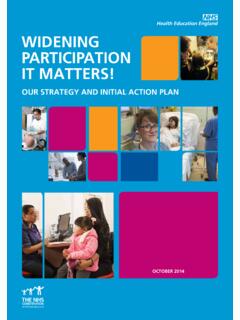

![Midlands [1 of 2] - hee.nhs.uk](/cache/preview/6/c/1/4/2/e/2/7/thumb-6c142e2790d053a442bd8a3e81c79697.jpg)
